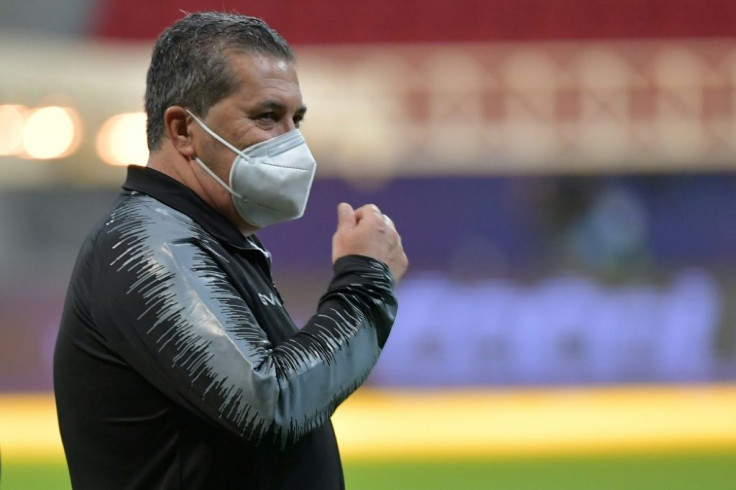Rocked By Covid Outbreaks, Copa America Opens In Brazil
The Copa America that almost never was opened Sunday in Brazil, overshadowed by the desperate search for a last-minute host, sponsor withdrawals and Covid-19 -- including outbreaks on three teams.
After more than a year of bad news that culminated in the last-minute scrapping of original co-hosts Argentina and Colombia, the South American championships finally kicked off with Brazil defeating a coronavirus-decimated Venezuela 3-0 in an empty Mane Garrincha stadium in Brasilia.
But the inaugural match, which started with a minute of silence for victims of Covid-19, does not mean a respite from controversy, or from the virus.
Officials confirmed a day before kickoff that eight Venezuelan players and four coaches had tested positive for Covid-19, forcing the country to call up 15 emergency replacements to face the defending champions.
Bolivia later said three of its players and a coach had also tested positive ahead of their team's debut Monday against Paraguay.
And Colombia, who face Ecuador in Sunday's second match, said an assistant coach and a physical therapist had tested positive.
All those infected have to observe a 10-day quarantine.
The South American football confederation, CONMEBOL, defended its decision to press ahead with the tournament, calling criticism "baseless."

"CONMEBOL is fully aware of the situation the continent is going through in the pandemic. But it also recognizes the importance of football in South America," it said.
"The decision to hold the Copa America in Brazil is not capricious or improvised.... It was not pulled together at the last minute, which would be impossible. It is the result of more than a year of intensive planning."
The outbreaks are unlikely to derail the tournament, whose final is set for July 10 in Rio de Janeiro's legendary Maracana stadium.
CONMEBOL is allowing teams unlimited substitutions for players ruled out because of Covid-19 or contact with infected people.
But the news fueled further criticism of the event, and of far-right President Jair Bolsonaro for agreeing to host it despite the fact the pandemic is raging in Brazil.
"There are vested interests in making the Copa America happen," said sociologist Rodrigo Moreira of Fluminense Federal University.
"The government wants to show the country is ready to host it, when in reality it's not. And (organizers) want to guarantee their profits" from TV rights and sponsorship deals, he told AFP.

Originally scheduled for 2020, the Copa America, the world's oldest international football tournament, was delayed 12 months by the pandemic.
It nearly had to be called off again when Argentina and Colombia fell through as hosts because of a surge of Covid-19 in the former and violent anti-government protests in the latter.
Bolsonaro, who faces widespread criticism for his defiance of expert advice on managing the pandemic, gave his blessing two weeks ago for Brazil to stand in.
But epidemiologists warn the event could exacerbate a Covid-19 outbreak that has already claimed more than 487,000 lives in Brazil, second only to the United States.
Since then, the bad news has continued piling up.
Three sponsors -- Mastercard, beer giant Ambev and alcoholic beverage company Diageo -- pulled their branding from the tournament.
Many players and coaches criticized the event, including the entire Brazilian national team, and critics went to court to block it.
Brazil's Supreme Court ruled Thursday the tournament could go ahead -- but ordered the government to submit an extensive health protocol.
The 10 teams will undergo mandatory Covid-19 testing every 48 hours. Their movements will be restricted, and they will travel between the four host cities on chartered flights.
Despite their famed love of football, many Brazilians say they do not want the tournament.
In Brasilia, there was little enthusiasm before the opening match.
Opponents protested outside the stadium before the match, holding signs that said, "We don't want the Copa, we want vaccines!"
Dozens of indigenous protesters in feather headdresses also protested, calling for protection of their ancestral lands and Covid-19 vaccines for their communities.
"It's a fact that everyone who participates in this event risks being infected," said civil servant Murilo Monteiro, 29.
"We just hope they won't spread the virus even more here in Brazil."
© Copyright AFP 2024. All rights reserved.





















